As you approach the finish line of your academic journey, you might find yourself needing a little flexibility to meet graduation requirements. Whether it's a unique circumstance or an unforeseen challenge, requesting an exception can feel daunting, but it's a necessary step toward reaching your goals. Crafting the right letter can make all the difference and help you effectively communicate your situation. So, if you're curious about how to navigate this process and improve your chances of success, keep reading for a step-by-step guide!
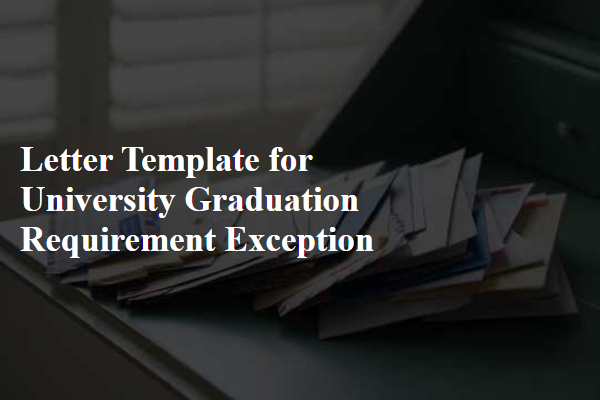
Detailed Reasoning for Exception Request
Students pursuing their final year at universities often encounter graduation requirements that may present unforeseen challenges. In cases where students seek exceptions to these requirements, a detailed rationale is essential to support their request. For instance, an unexpected medical condition, such as a severe injury or chronic illness, can hinder a student's ability to complete specific course credits needed for graduation. Documentation from healthcare professionals emphasizing the impact of the condition on academic performance strengthens the case for an exception. Additionally, significant personal circumstances, like a family crisis or financial constraints, can impede a student's progress. All these factors must be articulated clearly to the academic board, ensuring they understand the student's unique situation and justify the need for flexibility regarding graduation criteria, thereby fostering an accommodating educational environment.
Supporting Documentation and Evidence
In the context of seeking an exception for university graduation requirements, strong supporting documentation is essential. Detailed evidence should include a comprehensive explanation of the unique circumstances leading to the request, such as medical emergencies (e.g., a documented hospitalization lasting more than two weeks), personal hardships (e.g., family loss impacting academic performance), or participation in significant extracurricular commitments (e.g., representing the university in national competitions). Additionally, official statements from academic advisors, transcripts highlighting completed coursework, and letters from employers or organizations demonstrating relevant experiences contribute valuable context. All documentation must be clearly labeled, appropriately signed, and submitted by the university's specified deadline to ensure thorough consideration by the academic committee.
Specific Course or Requirement in Question
Pursuing a degree at a university requires adherence to various academic standards and course completions. When faced with specific course or requirement exceptions, students often seek adjustments from academic departments. An example includes a situation where a student may request an exception for a core course, such as "Introduction to Psychology (PSY 101)," impacting their graduation timeline. Universities often expect documented reasons for such requests, relying on criteria like academic performance, personal circumstances, or prior experience that showcases knowledge of the subject. The process typically involves submitting a formal petition to the appropriate faculty committee, emphasizing how the exception aligns with the educational goals outlined by the institution's curriculum guidelines and ensuring compliance with accreditation standards.
Approval and Contact Information from Relevant Faculty
Requesting an exception for graduation requirements often necessitates clear communication with relevant faculty members. Relevant faculty, such as academic advisors or department heads, can provide approval for course substitutions or waivers. Essential details include the student's full name, university ID number, and contact information (such as a university email address) to facilitate correspondence. Furthermore, specifying the exact requirement in question, alongside any supporting documentation like transcripts or syllabi, strengthens the request. Maintaining a professional tone is critical to convey seriousness, while outlining the rationale for the exception succinctly encourages favorable consideration of the request.
Future Academic Impact and Plan
Students seeking an exception to university graduation requirements should consider the potential future academic impact of their request. This includes assessing how the alteration may affect their course load, academic standing, and eligibility for future programs, such as graduate studies or specialized certifications. It is essential to develop a detailed plan outlining the steps to mitigate any negative consequences, including seeking tutoring resources, consulting academic advisors, or adjusting future enrollment patterns to ensure timely degree completion. Recognizing deadlines, such as withdrawal dates for classes and financial aid implications, can also play a critical role in maintaining academic integrity while accommodating specific needs. A thoughtful approach demonstrates commitment to academic goals and a proactive way of planning future educational pursuits.
Letter Template For University Graduation Requirement Exception Samples
Letter template of application for special consideration in graduation requirements
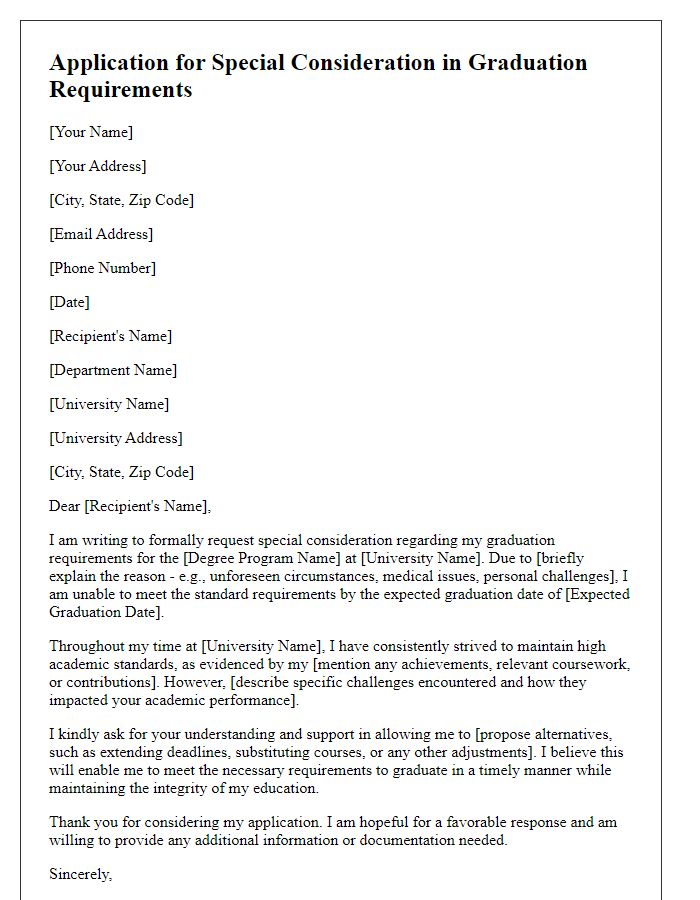
Letter template of request for academic requirement adjustment for graduation
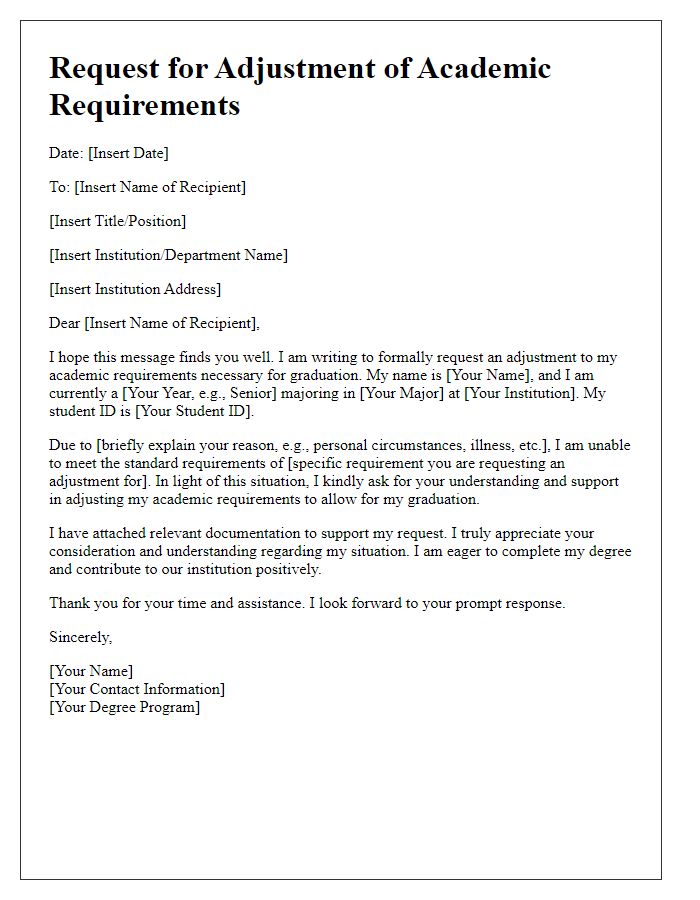
Letter template of formal request for graduation requirement substitution
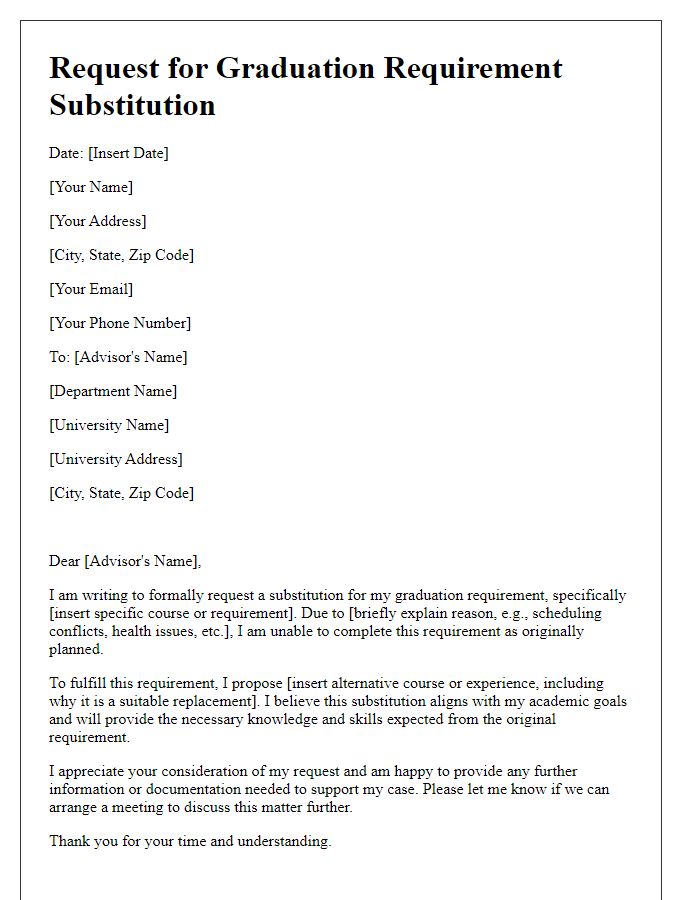

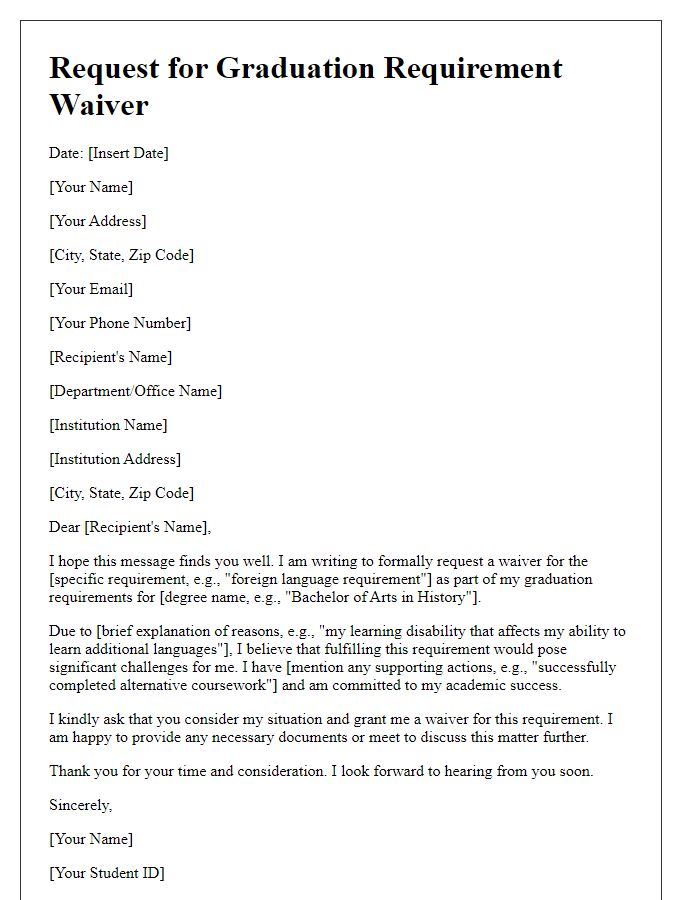
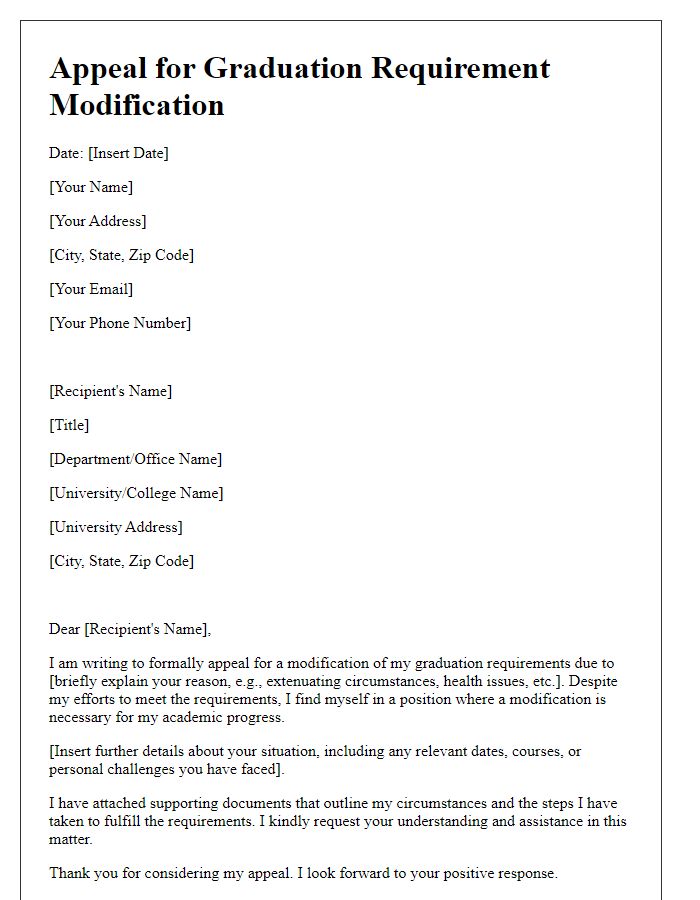
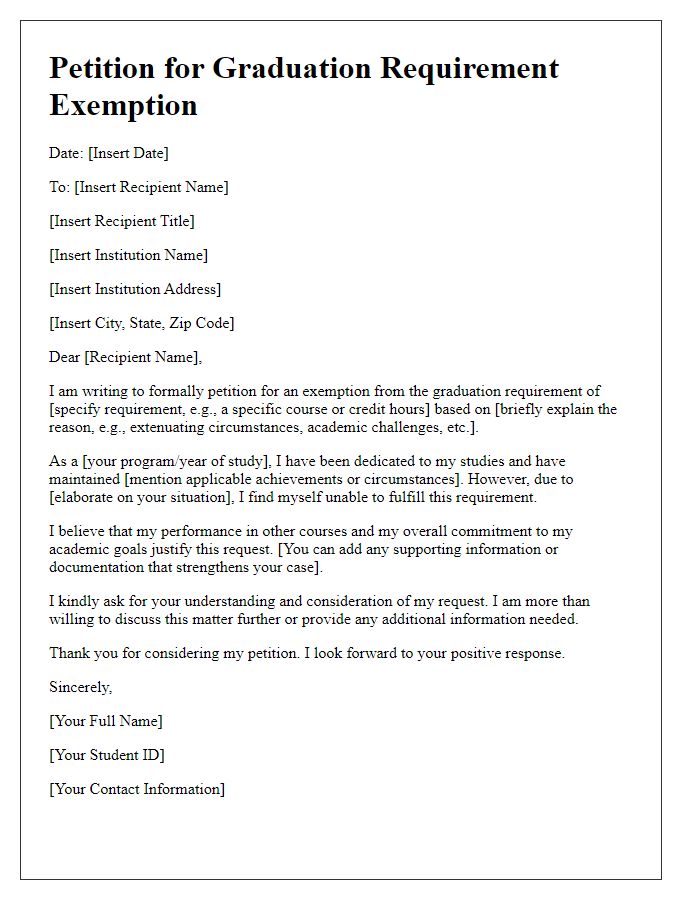
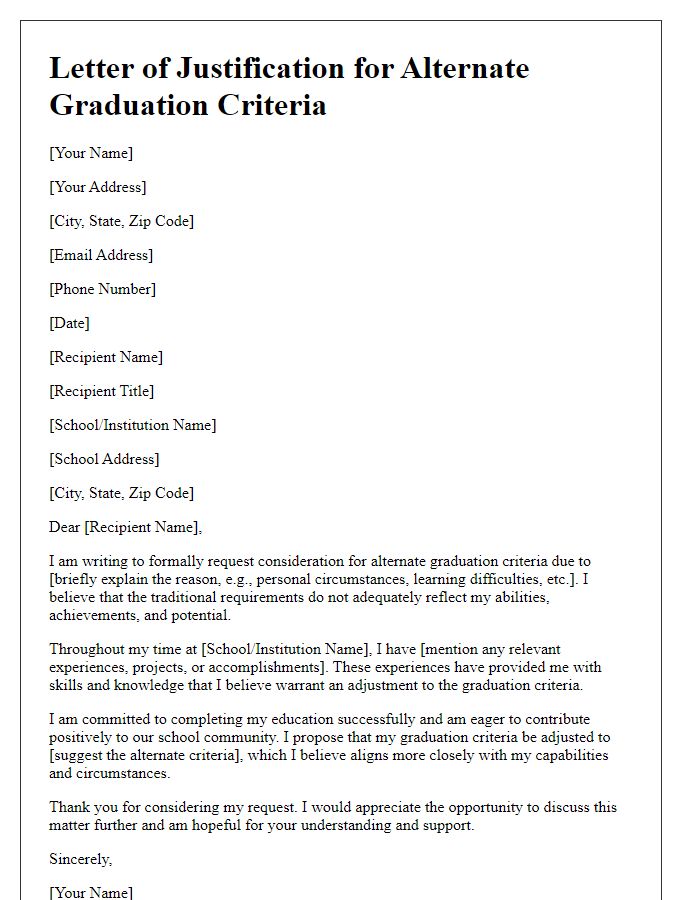
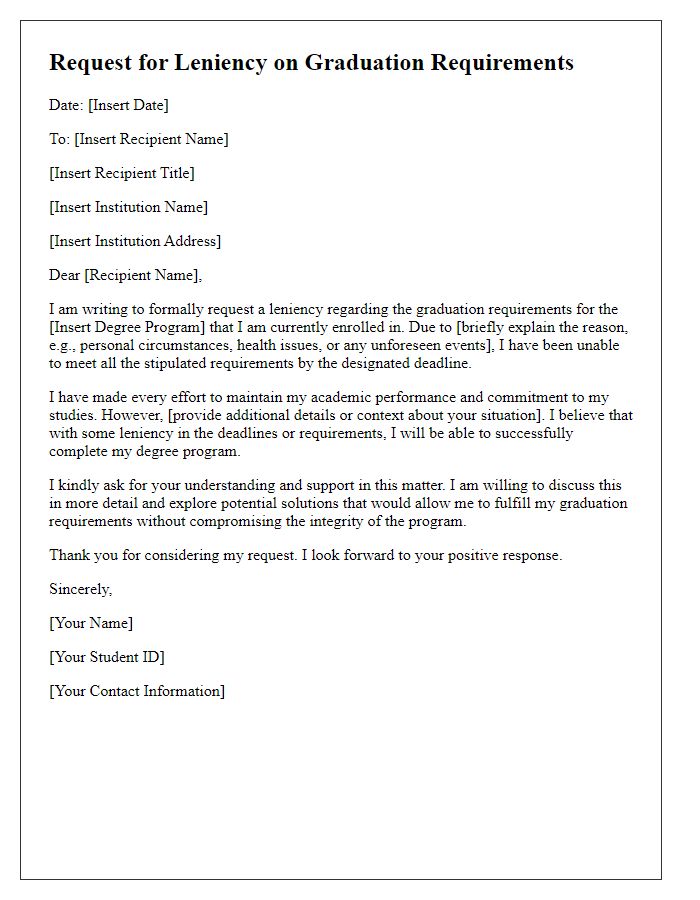
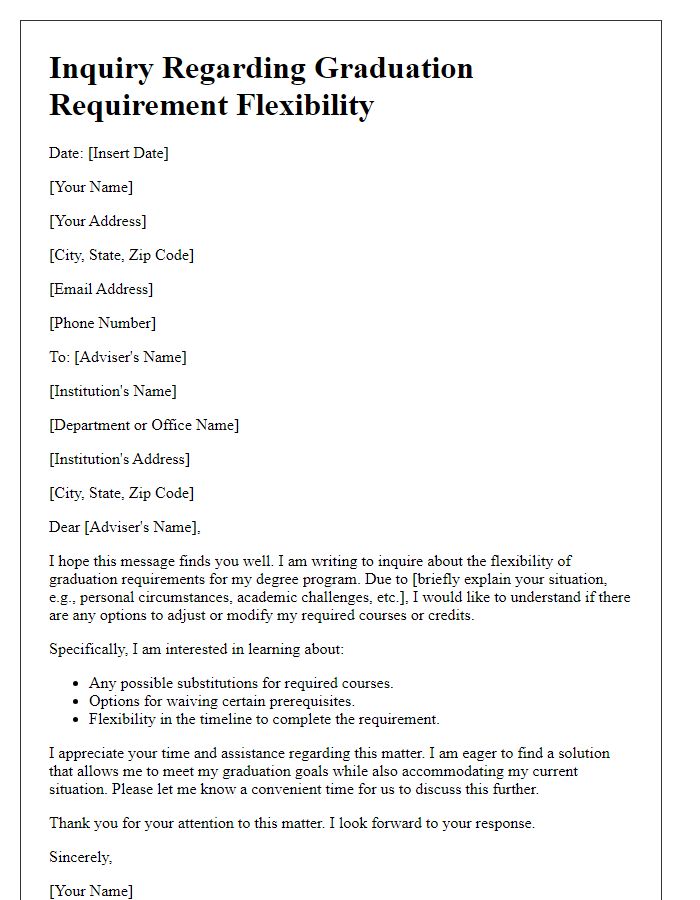
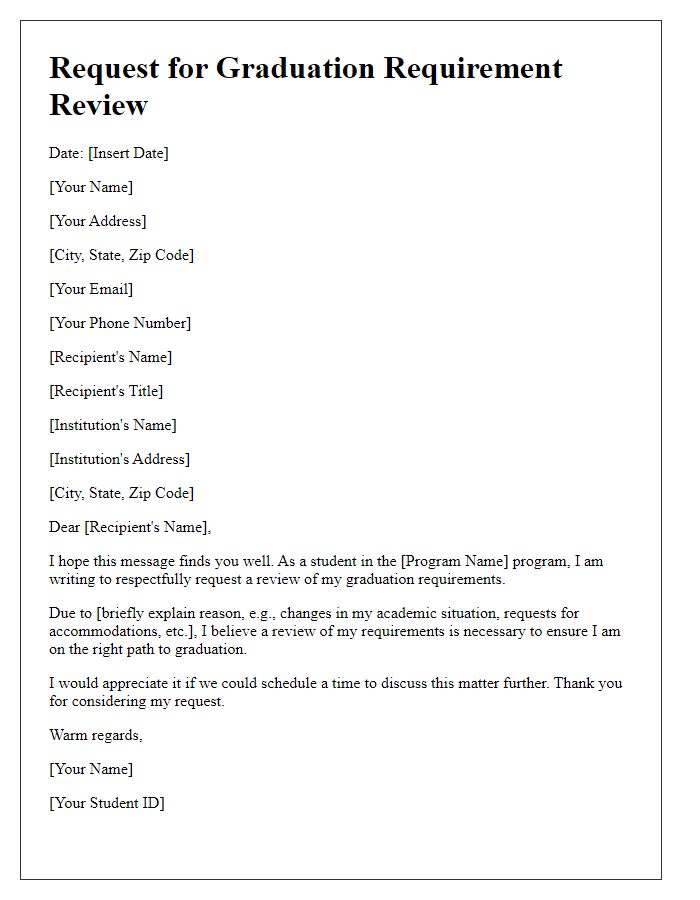


Comments